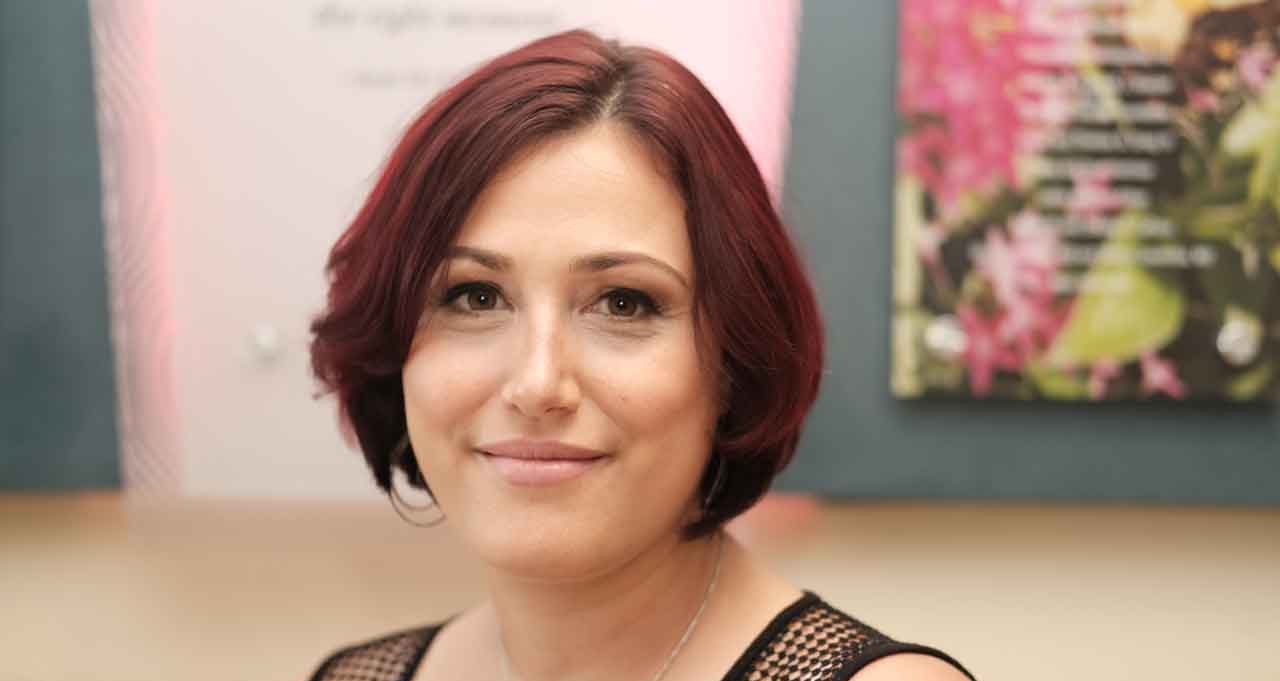Breast Cancer Survivor Pays It Forward

Breast cancer survivor Silvia Montoya helps breast cancer patients navigate the healthcare system, sharing her knowledge and mental support.
At 33 years old, Silvia Montoya was diagnosed with advanced stage breast cancer. It was totally unexpected.
She was recently married and looked forward to life with her new husband and three young children from a previous marriage. “The diagnosis completely came out of left field,” she said. “We have a history of high blood pressure in my family, not cancer.”
She started chemotherapy, and the side effects took their toll. “I stopped feeling normal and began to feel like a cancer patient,” she explained. “I fit into this group of bald, sick cancer patients and didn’t feel like myself at all.”
She placed her hope in the hands of the nurse navigators at Overlook Medical Center in Summit, NJ. “They were so kind, especially Sandra Wrigley,” she said.
YOU MIGHT ALSO LIKE: 8 Little Known Breast Cancer Facts
Wrigley, an RN, always greeted Montoya with a smile and taught her how to navigate the world of health insurance, doctor and chemo appointments, therapy sessions, and how to talk to her family about her illness. “It’s a maze of information that is overwhelming, especially when you are undergoing chemo,” Montoya said.
Montoya calls Wrigley her angel; her goal is to be like her. “Being diagnosed with cancer made me want to shut down,” she said. “At times, I felt like a zombie. Sandy (Wrigley) always had something positive to say. She asked me about my kids and took a real interest in me. If I had a bad day, she’d see it by the look on my face,” Montoya said. “She’d even call me at home and let me talk. She’s great at listening.”
Montoya assumed that everyone who had cancer had a nurse navigator. She learned otherwise in chat rooms that offered support to other cancer patients. “I’d mention my nurse navigator, and people in other states would ask, ‘what’s that?’”
She was so impressed by the care she and her family received that she decided when she got better she’d volunteer her time to help other breast cancer patients. “I got so much help and assistance,” she said. “During chemo treatments, I had to take time off of work because the chemo leaves you feeling tired and sick. So, in addition to worrying about cancer, you’re worried about your expenses.”
The nurse navigators and her husband helped. “He was my rock,” she said. “He listened and was so strong. Even at my lowest point, he was supportive. I got a lot of strength from him and from my nurse navigator. It was unbelievable to me to be at your lowest point and to have people who care about you and who offer their help.”
Montoya is giving back. She’s been cancer-free for a year and volunteers at Overlook, Trinitas, and Morristown Medical Center, all hospitals based in New Jersey, and at Curémonos, a grassroots, community-based nonprofit that translates to “healing together.” Curémonos was created by Dora Arias, a breast cancer survivor, to provide education, support, and advocacy to medically underserved women. Curémonos mostly assists Latina women dealing with breast cancer.
“I’m acting as a navigator for mostly Spanish-speaking women with breast cancer,” Montoya said, “since they have another hurdle to overcome — the language barrier.”
She acts as a sounding board, listening to patients with breast cancer express their fears. She helps people get wigs, prosthetic breasts, and medications. “It’s a connect-the-dots maze that one has to go through when they have cancer,” she says. “There are so many steps, too many, that overwhelm us. Having someone there to help makes a difference for the better.”
Montoya hopes to work full-time at Curémonos one day. She is also looking into becoming a nurse. When she’s not volunteering, she’s back at the restaurant where she worked before her diagnosis. She recently hosted a fundraiser during Breast Cancer Awareness Month and raised more than $1,000.
Montoya’s last chemo treatment was in June 2016. “Surviving cancer is a lot like PTSD,” she said. “You have fears and live with them. I’m drawn to other people who have cancer. We have a connection, and I want to listen and help them like the people in my life who have listened and helped me. I’ve learned that we just need someone to hear us. It’s very scary. I’ve been through it and can completely understand and empathize with other cancer patients’ fears.”
“Volunteering makes me feel that I’m doing something that matters. And I want my life to matter because I came so close to losing it.”
YOU MIGHT ALSO LIKE: Anxiety Can Kill if You Avoid Breast Cancer Screenings
Updated:
August 21, 2017
Reviewed By:
Janet O’Dell, RN